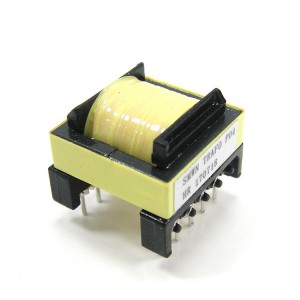A power transformer is a crucial component in an energy meter, serving the purpose of stepping down the voltage from the power lines to a level that can be safely and accurately measured. This article will delve into the significance of power transformers in energy meters and their role in ensuring the efficient and reliable measurement of electricity consumption.
The primary function of a power transformer in an energy meter is to reduce the high voltage of the incoming electrical supply to a lower, more manageable level. This lower voltage is then used to power the internal circuits of the energy meter and to accurately measure the amount of electricity consumed by a household or a commercial establishment. Without the transformer, the high voltage from the power lines would be too dangerous and impractical for direct measurement.
In addition to voltage reduction, power transformers also provide isolation between the high-voltage power lines and the low-voltage circuits of the energy meter. This isolation is essential for the safety of both the metering equipment and the individuals who may come into contact with it. By creating a barrier between the high and low voltage circuits, power transformers prevent electrical hazards and ensure the proper functioning of the energy meter.

Furthermore, power transformers contribute to the overall efficiency of energy meters by minimizing power losses during the voltage conversion process. Through the principles of electromagnetic induction, transformers can efficiently convert the incoming electrical energy from one voltage level to another with minimal energy dissipation. This efficiency is crucial for accurate metering and billing of electricity usage, as any losses in the transformation process could lead to inaccuracies in the recorded consumption.
Moreover, power transformers play a vital role in adapting the electrical supply to the specific requirements of the energy meter. Different types of energy meters may operate at varying voltage levels, and power transformers enable the incoming power to be tailored to the precise needs of the metering equipment. This flexibility ensures that energy meters can effectively measure electricity consumption across a wide range of voltage levels and supply conditions.

In summary, the purpose of a power transformer in an energy meter is multi-faceted and essential for the accurate measurement and safe operation of electricity consumption. By stepping down voltage, providing isolation, minimizing power losses, and adapting the electrical supply, power transformers enable energy meters to function reliably and efficiently. As the demand for precise and reliable energy measurement continues to grow, the role of power transformers in energy meters remains indispensable in ensuring the integrity of electricity billing and consumption monitoring.
Post time: Aug-30-2024

